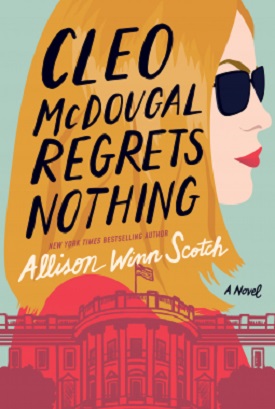 Synopsis:
Synopsis:
Politics is a test of wills. But Cleo McDougal is a born politician. From congresswoman to senator, she’s a magnetic, ambitious single mother. And now she has her eye on the White House — always looking forward to her next career move, never back.
Until an estranged childhood friend shreds her in an op-ed hit piece that goes viral.
With seven words — “Cleo McDougal is not a good person” — Cleo finds herself in damage control mode. And not just in Washington, where her political ambition may be permanently derailed. In her life.
Cleo’s “regrets list” stands at 233 . . . and counting. Her chief of staff comes up with a brilliant idea: pick the top ten, make amends during an orchestrated media blitz, and repair her reputation.
But there are regrets . . . and then there are regrets. She has a broken relationship with her sister. She had an affair with a law school professor. And there’s one regret so big she can’t even utter it out loud.
But with risk comes reward, and as Cleo makes both peace and amends with her past, she becomes more empowered than ever to tackle her career, confront the hypocrites out to destroy her, and open her heart to what matters most. One regret at a time.
Review:

New York Times bestselling authorAllison Winn Scotch has penned seven previous novels, including The Song Remains the Same, Time of My Life, In Twenty Years, and Between Me and You. She hopes that her eighth, Cleo McDougal Regrets Nothing will resonate with readers as “a thoughtful reflection on being a woman in this specific moment in time, . . .” It is a powerful exploration of female ambition, friendship, and learning to be comfortable and unapologetic in one’s own skin. And yes, those topics require a very different analysis with respect to women than they do in relationship to men. Which is one of the points Scotch makes with insight, humor, and compassion.
“Cleo McDougal is not a good person. She does good, yes, but doing good and being good aren’t the same, now, are they? In fact, her whole life Cleo McDougal has been a cheater. She cheated in high school, on the debate team, on the school paper, for a summer internship, and from there it only got worse. ” By the time Senator Cleo McDougal learns that her former best friend, MaryAnne Newman, has written those words in an online alternative “newspaper,” the piece has gone viral on Twitter and across the internet. Political blogs are having a field day at Cleo’s expense. Unfortunately, Cleo had taken the advice of her chief of staff, Gaby, imparted from her therapist: spend an hour each morning “unplugged.” So while Cleo completed her morning workout, showered, dressed, and dragged her fourteen-year-old son, Lucas, out of bed — all by 7:15 a.m. — her brilliant career may have imploded. She is utterly blindsided, not because she never thinks about MaryAnne, but because, over the years, she has “spent a lot of time trying not to think about her. How can you drive away from your past without even glancing in the rearview mirror? That kind of focus took effort.”
Choices are made, regrets are managed, consequences arise.
But MaryAnne goes too far. In the article, she alleges that Cleo had an affair with a married professor and speculates that he might be Lucas’s father. And it is Lucas who receives an alert about the article on his cellular telephone and informs Cleo about it.
In the hands of a less skilled writer, Cleo’s story could have been far less moving and emotional than the book proves to be. Scotch very specifically set out to write a tale that is not focused on romantic relationships or politics, and succeeds spectacularly. She deliberately created Cleo as a single mother because “being on her own was a statement that she didn’t need the man.” About that, Cleo is self-aware. “You can be a staunch independent feminist and still love a Kate Hudson rom-com. But Cleo knew she would never be the heroine in a romantic comedy. She just wouldn’t. She’d made her peace with that years ago.” Cleo happens to be a politician and the story plays out against that backdrop, but the focus is on the way in which Cleo reacts to her former friend’s accusations and what she learns in the process. Interestingly, Scotch decided that making Cleo a politician was the “most overt way to exemplify all these ways women are being held to a higher standard because we saw it play out [in U.S. politics].” I didn’t think it would be necessarily as effective if [Cleo] were a CEO.She didn’t think it would be “necessarily as effective” if Cleo was in the corporate world.”
Cleo is intelligent, strong, self-reliant, and extremely ambitious, an attribute that is required to succeed as a professional woman, whether it be in politics or another career. Her image has been carefully cultivated and she knows that she must launch into a salvage operation in order to save her political prospects. Women’s reputations simply are not made or broken in the same way as men’s. She’s acutely aware that ambitious women are still viewed quite differently and judged harshly through a misogynistic lens. Cleo was about to announce her candidacy for the office of President of the United States, a dream she is not going to let go of without a fight.
At first, Cleo is believably defensive and denies MaryAnne’s accusations. But Gaby declares that Cleo is going to embark on a “No Regrets” tour during which she is going to confront her top ten regrets, culled from a list of 233 that Cleo was encouraged by her father to write down so she could later look back and decide if they were truly mistakes and, if so, learn from them. But the list hasn’t served her in quite the way her father envisioned. “She’d convinced herself that if she purged her misdeed on paper, recognized it for what it was — anything from an innocent mistake to an intentional obfuscation — she could pick it up and leave it behind her on the side of the metaphorical road, drive away with a clean conscience.” Of course, life doesn’t work that way. And Gaby’s idea sounds preposterous — no male politician would undertake such an endeavor, after all. But, as noted, Cleo is all-too-aware that the rules are different for men and women, and Gaby is insistent that Cleo must show everyone how liable and relatable she is, even though she’s made mistakes.
So she complies, but instead of simply confronting her past for the sake of her future, Cleo begins examining in earnest the choices she has made, the calculated ways in which she ensured that she attained her goals (congresswoman at the age of 25, senator by the time she was 31, and now, at 37, poised for a presidential run). She realizes that, over the years, she placed a high value on things that turned out to be less worthwhile than she estimated. She discovers that she justified her own conduct without considering the circumstances objectively, taking others’ perspectives and viewpoints into account.
In a particularly poignant and powerful encounter, Cleo confronts her law school professor. she acknowledges her role in their history, but indicts him for his behavior as she belatedly takes steps to ensure that no other young woman finds herself in a similar situation, something she could and should have done years ago. In the process, as a result of her newfound bravery, she finds herself inspiring other women — she becomes a hashtag — and realizes that she doesn’t regret “burning it all down. If she had to do it all again she would. Tomorrow. That was the opposite of regret, she decided. That was living.”
At last, she comes to terms with having withheld information from Lucas, the son she loves and tried to protect. And reconnects with her sister, Georgie.
Scotch takes readers on Cleo’s journey with her as she confronts the choices she made, the people she hurt, the mistakes she didn’t own up to at the time, and the ways in which she failed to acknowledge and process her own feelings. Scotch employs her signature witty, often hilarious dialogue, surrounding Cleo with a supporting cast of characters that keep the action moving and prevent the story from becoming maudlin or cloying. The mother of teenagers herself, Scotch hits just the right tone with Lucas. His commentary and emotional reactions are credible, sometimes heartbreaking, and thoroughly endearing.
But it is Cleo’s evolution that is the centerpiece of the story, effectively and compellingly chronicled by Scotch as she navigates her listed regrets and seeks to set things right. She learns about accountability and forgiveness, and in the process gains new appreciation of and the ability to productively harness and direct her own power.
From Scotch’s perspective, the book is ultimately “about power: having it, losing it, abusing it, flaunting it, sharing it, craving it, and bequeathing it.” And “part of being a woman and being a human is that you just gotta rise up.” Readers will find themselves cheering for Cleo as she slogs through her past and makes decisions about her future. Because for all of her faults, she is empathetic. Every woman reader will see something of herself in Cleo, which is the real joy in reading about her sojourn, and cheer for her to rise up just as women all over the world are, at this time in history, rising up and demanding that their power be recognized and their voices heard.




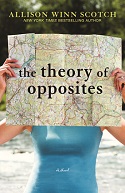
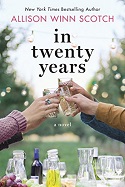
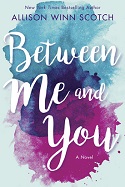
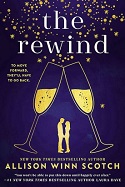


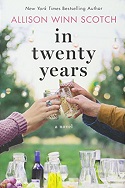


Comments are closed.